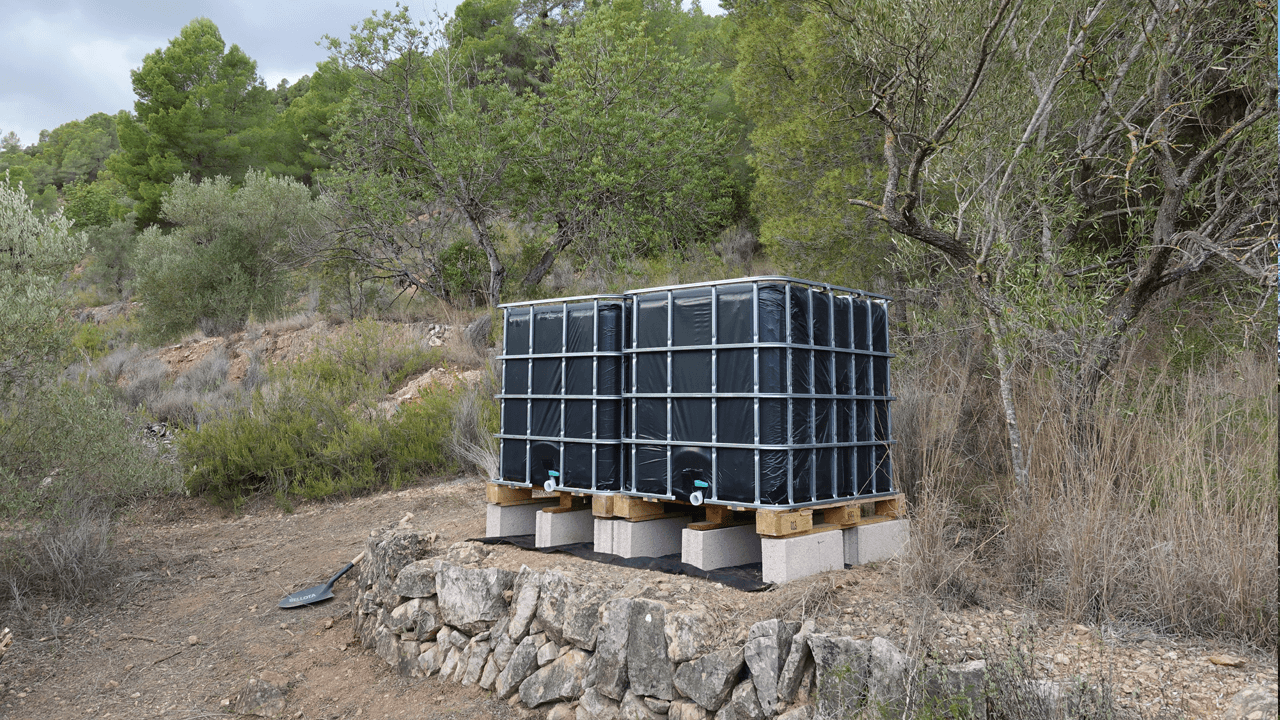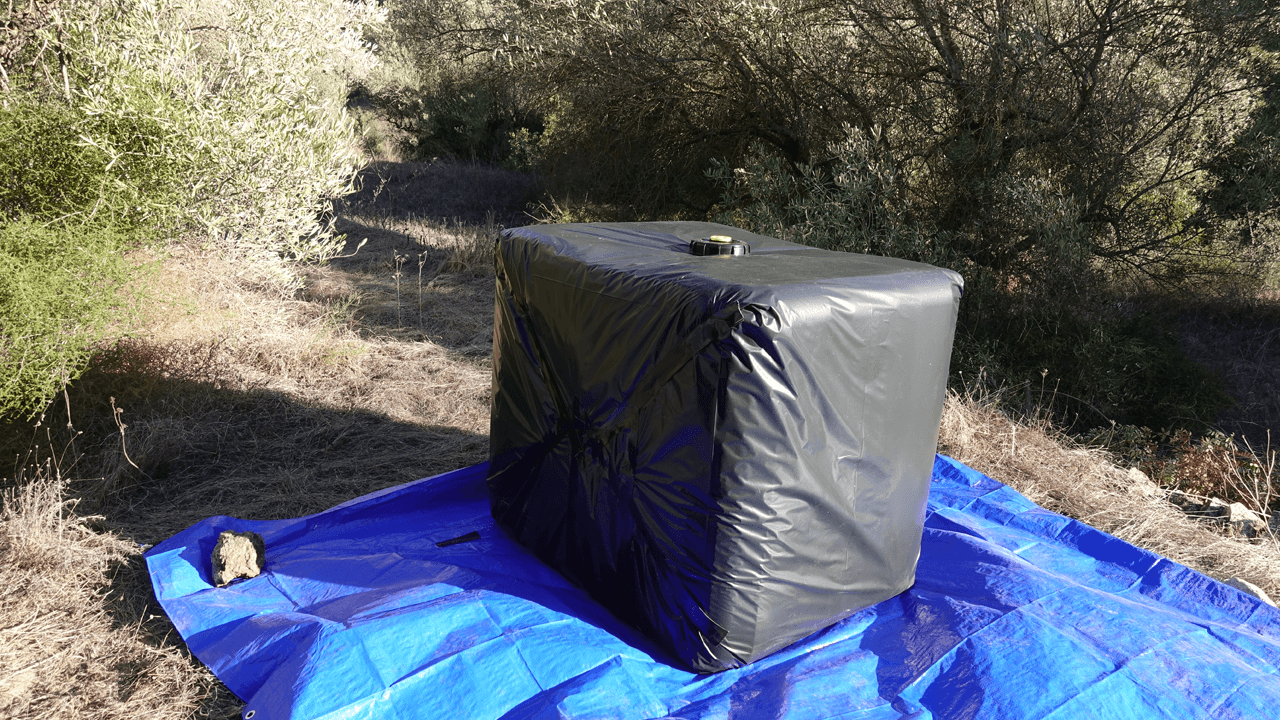Reading time: 6 minutes
When you think of off grid water systems, you might envision a cabin sitting in the woods, where the air is fresh and the morning light filters through the trees.
You probably imagine cooking breakfast over a fire cooker, using eggs freshly collected from your chicken coop, and enjoying a cup of coffee while you wait to eat.
Well…
This lifestyle, is often referred to as homesteading or as off grid living. It is characterized by self-sufficiency and independence from water or energy grid systems.
One very important part of this lifestyle is water. On this article I will talk a little bit about off grid water systems.
Understanding Off Grid Water Systems
An off-grid water system is a drinking or potable water supply that is not connected to the grid or to a municipal water system.
A true off grid water systems are entirely independent of the main water sources, filtration plants, and distribution pipes that supply water to the households in the cities.

There is a lot of work involved in building or installing such a off grid water system.
But once it is done, it will provide you with your own running water for drinking, cooking, bathing, watering the garden, feeding the animals, etc.
You will have the freedom to live self-sufficiently.
Like on-grid water systems, off grid water systems require:
Delivery of water or water source;
Clean water treatment system;
Distribution system for water usage;
Wastewater disposal or recycling system;
Without these critical parts, a off-gri water system could fail due to insufficient supply, impracticality or water contamination.
Water Tank Protection
Adding protection such as a black tarp over your water tank will protect the water and storage tank from the effects of uv sun light.

Implementing this type of black tarp protection will also prevent algae from forming in the off-grid water system. This protection will keep the water clean and fresh.
On our abandoned farm we added a filtration system to keep the water free of sediment or any other contaminants.
Key Components of an Off Grid Water System
Different types of off the grid water systems have different components. Some of the components that many of these systems have in common are:
Source of Water: Most off-grid water systems use an alternative water source, such as an underground aquifer, spring, rainwater, or a surface water source (such as a river or a lake).
We have an old stone well from which we will collect water in the near future. Before that happens we need to restore it.
Water Treatment: Depending on the type of water source, it is usually necessary to use some type of filtration, as it may not be safe for human consumption in its natural state.
in the case of our abandoned farm in Spain, we are installing a sediment filtration systems to the water tanks. This will keep the water of good quality
Types of Off Grid Water Systems
There are numerous off-grid water systems, each offering alternative methods of obtaining, storing and distributing water for drinking, bathing or any other use.
Some of the most common types pf off grid water systems include:
Private Wells in the Property: These tap into underground aquifers to provide a steady supply of water. As we have a well in the farm, once restored it will be our main source of water.
Rainwater Catchment Systems: These collect and store rainwater for later use. We will build and install a rainwater collection system on the farm
Borehole Water Pumps: These draw water from deep underground aquifers. In Spain, the use of borehole is practically unfeasible due to bureaucracy and cost.
Greywater Filtration Systems: These treat and reuse water from sinks, showers, and washing machines. This recycled water can be used in vegetable gardens.
Septic Tanks: These treat and dispose of wastewater from toilets. Although, we are thinking about using only compost toilets on our abandoned farm.
The Pos and Cons of Off Grid Water Systems
Living off the grid is a lifestyle choice that more and more people are considering.
Off-grid water systems provide independence and self-sufficiency, but they also present challenges.
One of the biggest challenges of this lifestyle is building and managing the water supply.
Watch the video:
In video I show some of the steps we took to build and install our off grid water system using IBC totes as water storage tanks.
These are some of the pros and cons of off-grid water systems.
Pros of Off-Grid Water Systems
1. Independence and Self-Sufficiency
One of the most significant advantages of off-grid water systems is the independence they provide. You’re not reliant on a municipal water supply, which can be a huge benefit if you live in a remote area or if there’s a disruption in the water supply.
2. Control Over Your Water Supply
With an off-grid water system, you have complete control over your water supply. You can manage how much water you use, where it comes from, and how it’s treated. And this is very important, especially in these times we are living in.
3. Potential Cost Savings
While the initial setup costs can be high, over time, an off-grid water system can save you money. You’re not paying for water usage or sewage services, and if you use a renewable source like rainwater, your ongoing costs can be minimal.
Cons of Off-Grid Water Systems
1. Initial Setup Costs
The initial cost of setting up an off-grid water system can be high. You’ll need to invest in equipment like pumps, tanks, filters, and possibly a well or rainwater collection system.
2. Periodic Maintenance
Off-grid water systems require regular maintenance to ensure they’re working correctly. This can include cleaning and repairing equipment, testing the water quality, and managing the water source.
3. Dependence on Environmental Factors
If you’re relying on rainwater or a well, your water supply can be affected by environmental factors. Drought, for example, can significantly impact your water availability.
4. Legal Restrictions
In some areas, there may be legal restrictions on certain types of off-grid water systems. For example, some regions have strict regulations on rainwater collection or borehole drilling.
Conclusion
While a remote cabin may seem like the perfect getaway from the hustle and bustle of modern life, you’ll still need a reliable water system for sustainable living.
With the right research, planning, and equipment, you can build a complete off grid water system tailored to your needs and the resources available on your land. Like we are doing it.
That’s it for this article. Did you like it?
Leave your comment or suggestion below. I love responding to all comments and I always do it personally.
Talk to you soon 🙂
P.S. If you would like to help us build our dream home, you can do it here. Or if you would like to help us continue recording videos, you can do it here. Either way, your support is very much appreciated.

Permalink
Hi Ricardo. I am following your journey on youtube. It is very inspiring what you are doing. This article is cool. Keep on doing what you are doing.
Permalink
Hello Paul. Thank you for following our journey 🙂
Permalink
I’m thinking about using IBC totes to store rainwater. I never thought about covering it with this black canvas kind of thing. What a great idea. Thank you for sharing it
Permalink
Hello Andrew. It’s a great idea, indeed. The black canvas not only protects the IBC bag, but also helps keep the water clean and free of algae.